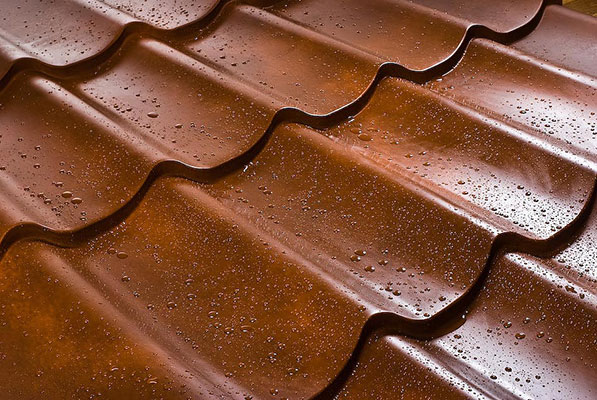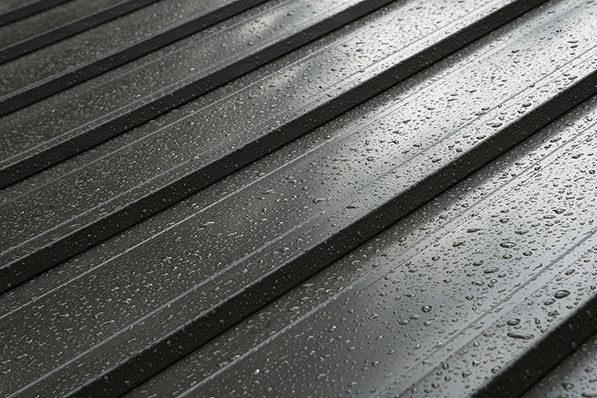The inquiry often arises: “Isn’t a metal roof noisy?” This question frequently crops up among homeowners and builders considering the installation of metal roofing. The concern typically stems from memories of places like barns or patio awnings, where there’s no barrier between oneself and the roof except the open air, allowing the sound of rain to reverberate more prominently.
As one delves deeper into addressing this query, it becomes evident that the notion of a metal roof being inherently noisy is often misconstrued. Interestingly, some individuals express a nostalgic fondness for the rhythmic sound of rain tapping on their grandparents’ old metal roofs. In today’s world, where the ambiance of rain is often recreated through various means like homeopathic fountains and ambient sound machines, the gentle patter of rain on a rooftop transcends mere noise; it embodies a comforting and soothing ambiance, reminiscent of nature’s embrace.

To truly grasp the concept of noise, it’s imperative to understand its definition. According to Webster’s dictionary, noise is characterized as sound or a sound that is loud, disagreeable, or unwanted. Sound intensity is quantified in decibels (dB), with 0 dB representing the softest audible sound and over 175 dB marking the threshold for the loudest. Generally, sound levels exceeding 70 dB can disrupt normal conversation, while prolonged exposure to levels surpassing 85 dB may lead to hearing impairment. Notably, the human ear discerns changes in sound only when the sound pressure level increases by 8 dB.
A comprehensive study conducted by The Acoustic Group at the University of Luleå, Sweden, delved into the sound emission levels produced by rain falling on various roofing materials. Surprisingly, the study revealed that metal roofs did not significantly amplify sound compared to traditional shingles. The difference in sound levels between shingle and metal roofing amounted to merely 6 dB, indicating a marginal variance in sound intensity.
The variance in sound pressure resulting from rain on a metal roof hinges on several factors, with construction method being paramount. A metal roof installed over open framing tends to produce a louder sound compared to panels installed atop a solid roof deck. The presence of a roof deck effectively absorbs or dampens the sound, mitigating its impact and resulting in a more subdued auditory experience.

In practice, most modern metal roofing installations in Ontario incorporate underlayment materials specifically designed to absorb sound. Additionally, in re-roofing scenarios, metal roofs are often installed over existing layers of shingles, further contributing to sound attenuation. With multiple layers of shingles, a roof deck, attic airspace, and ceiling insulation in place, occupants typically report hearing the rain on their skylights rather than the metal roof itself, underscoring the effectiveness of sound mitigation measures.
For those seeking the tranquility of raindrops on their new metal roof, managing expectations is crucial. Contractors can navigate this by first determining the client’s preference regarding the sound of rain on their rooftop. If the client appreciates this auditory experience, the roof can be tailored to accentuate the desired sound through strategic installation methods. Conversely, for those who perceive rain as noise, reassurance can be provided that a properly installed metal roof is no noisier than any other roofing material available, thereby alleviating concerns and ensuring a satisfactory roofing experience for all.

